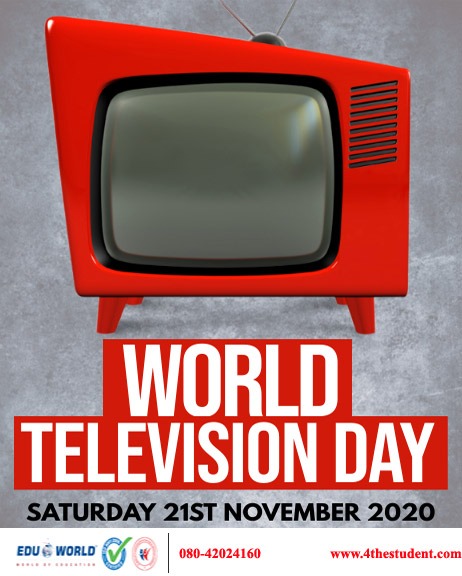World Television Day was established by the UN General Assembly in 1996. Television was acknowledged by the UN as having a greater influence on decisions and serving as an advocate for the entertainment sector. Our decisions and beliefs are influenced by television, which serves as a symbol of communication and globalization. The UN states that “World Television Day is not so much a celebration of the technology, but rather the idea which it represents,” and that “Television is a metaphor for communication and globalization in the current world.” Recognizing “the growing influence that television has on decision-making by drawing global attention to conflicts and dangers to peace and security and its prospective role in sharpening the emphasis on other significant concerns, including economic and social ones” The first World Television Forum was conducted by the UN in November 1996. At the forum, prominent media figures talked about the increasing importance of television on a worldwide scale. The General Assembly made the decision at that time to designate November 21 as World Television Day annually. John Loggie Baird, a Scottish engineer, developed television in 1924. According to the Press Information Bureau, television was launched in India on September 15, 1959, in New Delhi, more than 30 years after it was first created. This was made possible with the help of UNESCO. Initially, in India, programs on topics including community health, traffic, road sense, and citizens’ obligations and rights were shown twice a week for an hour each time.
World Television Day focuses on a current perspective on communication and globalization. It discusses how global communication has had a key role in shaping important global concerns and acting as a regulator of the global economy and international relations. The day also highlights the ever-growing demands for communication. On World Television Day, it is highlighted how communication has emerged as one of the contemporary global challenges, not only due to its importance to the global economy but also due to its proposals for the social and political developments. The day also highlights the UN’s ongoing efforts to address the major problems facing humanity, and how TV, as one of the most spectacular forms of communication today, should play a role in making the world aware of these problems.
Edu world recognises the TV, an important tool for geo-televisual communication, also gives social and economic concerns of public and trans-public concerns an amazing stage. TV serves as a tool that provides entertainment as well as a platform for introducing, analysing, and discussing global topics.




